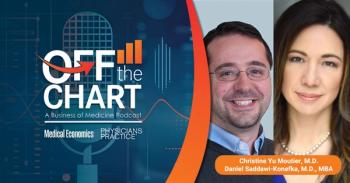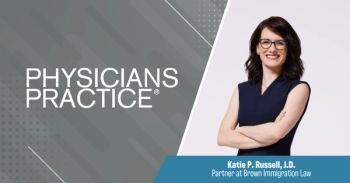
Healthcare Associations Decry Republican Tax Bill
The American College of Physicians (ACP) and other provider groups are not happy the recently-passed tax bill has repealed the individual mandate.
Welcome to Practice Rounds, our weekly column exploring what's being covered in the larger world of healthcare
Tax Bill’s Effect on Healthcare
This week, Congressional Republicans worked together to pass a massive tax reform bill, which aims to cut taxes for most Americans. The bill, which passed along party lines and is expected to be signed by President Donald Trump, includes major healthcare provisions. Most prominently, it will end the individual mandate, established by the Affordable Care Act, in 2019.
Trump, during a Cabinet meeting, claimed the elimination of the ACA individual mandate essentially was akin to the health law being totally repealed. "The individual mandate is being repealed. That means Obamacare is being repealed because they get their money from the individual mandate," said Trump,
In response to the bill's passage, the American College of Physicians (ACP) released a statement saying it was concerned premiums would rise sharply and insurers would pull out of the health insurance marketplaces. In its statement, the ACP recommended two bipartisan bills, which would aim to stabilize the ACA marketplaces.
"Congress needs to put aside any further effort to repeal the ACA. Instead it should attempt to mitigate the harm that will be caused by the tax legislation by immediately passing the Alexander-Murray market stabilization and Collins-Nelson re-insurance bills. But, even if bills such as these become law, Congress and the administration need to be prepared to take additional steps next year to stabilize the markets and preserve and expand coverage," stated ACP President Jack Ende, MD, MACP..
Another medical group, the American Hospital Association (AHA), wrote before the bill's passage that they thought it was "unfortunate that the important task of overhauling the tax code will erode health coverage for many." The AHA did praise some aspects of the tax reform bill, specifically those which protect hospitals' access to tax-exempt private-activity bonds. The American Academy for Family Physicians also opposed the removal of the individual mandate in a statement made before the bill passed.
Shift in Medical School Dynamics
According to the
"This year’s matriculating class demonstrates that medicine is an increasingly attractive career for women and that medical schools are creating an inclusive environment. While we have much more work to do to attain broader diversity among our students, faculty, and leadership, this is a notable milestone," Darrell G. Kirch, MD, AAMC president and CEO, said in a statement.
Quote of the Week
"The administration is pretty physician-friendly in terms of reducing the regulatory burden and dialing back any mandatory demonstration programs that require physician participation. I think the climate in Washington is fairly positive for physicians in that way."
Anders Gilberg, senior vice president of government affairs, MGMA
Newsletter
Optimize your practice with the Physicians Practice newsletter, offering management pearls, leadership tips, and business strategies tailored for practice administrators and physicians of any specialty.








